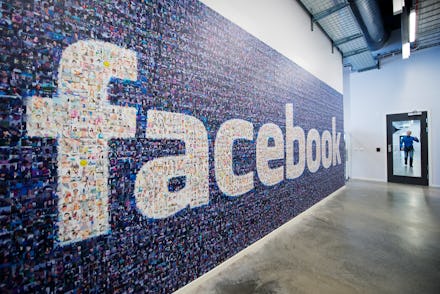Study Finds What Liberals Are Doing Differently Than Conservatives on Facebook

Differing political views may cost you a friend – at least on Facebook.
A fascinating new Pew Research Center study reveals how conservatives and liberals interact with their friends who post about politics on Facebook. Conservatives tend to have circles of friends who mirror their political views, and liberals are more likely to cut ties online with those who disagree with them politically.
Pew reports that "roughly 4 in 10 consistent liberals on Facebook (44%) say they have blocked or unfriended someone on social media because they disagreed with something the person posted about on politics." In comparison, 31% of conservatives and only 26% of all Facebook users have reported to do the same:
This unfriending impulse can extend to the real world, too. The study found that about 24% of liberals have stopped talking to someone because of opposing political viewpoints, compared to 16% of conservatives and 10% of those with mixed political viewpoints:
Still an echo chamber: Just because conservatives aren't pushing the unfriend or block button as often as liberals doesn't mean that they're being more tolerant of opposing viewpoints. Conservatives might not have to resort to unfriending because their Facebook friends already share the same ideology.
According to Pew, "consistent conservatives are twice as likely as the typical Facebook user to see political opinions on Facebook that are mostly in line with their own views." The average user sees 23% of their newsfeed content in line with their views, whereas the consistent conservative sees 47%.
Aside from revealing the not-too-shocking discord among political opponents, Pew also showed what types of groups Democrats and Republicans follow on Facebook. Consistent liberals are most likely to follow issue-based groups as opposed to a political party or candidates on Facebook. Consistent conservatives, more than any other group surveyed, are most likely to rely on one source of news, such as Fox News.
Why does all of this social media activity matter? Because only local TV trumps Facebook as the main source where Americans get their political news, the study reports.
The problem goes beyond Facebook: The Facebook habits of both conservatives and liberals seem to suggest that the groups are tailoring their news to what they do (and don't) want to hear. While it sounds like a luxury to be able to silence a political rant at the click of a button, it may not be good for the health of our public debate.
Social media habits reflect the bigger picture of a country that is increasingly polarized and more partisan than ever. In The Big Sort, Bill Bishop blames America's cultural divide on our living places, which are "becoming increasingly crowded with people who live, think, and vote like we do." The Pew survey suggests that our social media accounts are reflecting this trend, too.
While it may be nice to steer clear of your ranting Republican uncle or socialist college roommate, in the grand scheme of things, this avoidance could prove harmful. When we only listen to opinions that affirm those of our own, we fail to engage in the public forum that is so fundamental to democracy.
This isn't to say that it's necessary to engage in every Facebook rant – you would need to quit your day job to do that – but the next time you see something that you disagree with, you shouldn't necessarily turn a blind eye or ditch an online friendship.
Compromise is a necessary component of democracy, and it is awfully hard to compromise when the other side isn't heard.